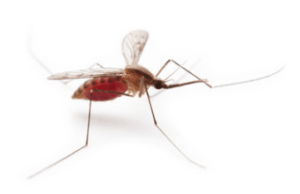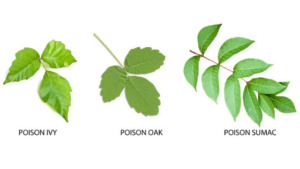
It’s no secret that winter is cold and flu season. Unfortunately, you can still get sick during warm summer months. With a little bit of know-how and easy to remember knowledge, you can take the proper steps to stay healthy this summer and avoid the common summer illnesses.
So, before you book that river rafting trip, dive into the ocean off your cruise, or hike into the cool covered woods to camp, take a few minutes to learn about some of the common summer illnesses. This can help you stay healthy and keep enjoying your favorite summer activities.
Heat Related Illness
A dip in the pool may sound nice to escape the heat but staying outdoors in high temperatures for too long can be dangerous. Heat- related illnesses can occur when the body loses the ability to cool itself off, due to prolonged exposure to hot temperatures.
Here are a few of the symptoms:
- Weak, rapid pulse
- Dizziness
- Fatigue
- Muscle Cramps
- Nausea
- Flushed Skin
Hot weather, coupled with dehydration, can lead to heat exhaustion and may eventually cause a heatstroke. Heat exhaustion can be reversed by getting out of the heat, drinking fluids, removing tight or insulating clothing and resting. Heatstroke is much more serious and needs immediate medical attention.
Bug Bites

Insects enjoy the summer months just as much as we do. The heat brings out mosquitoes, ticks, and spiders. Bites from these insects can cause illness and infection. Mosquito-borne infections are commonly caused by the arboviruses and can lead to West Nile , St. Louis encephalitis, and dengue fever. They are more common in the summer, specifically late summer and early autumn. Tick-borne illnesses include Lyme disease, Rocky Mountain Spotted Fever, and ehrlichiosis. These are also more common during the summer months, especially if you have been camping or playing in tick-infested areas (grassy, brushy, or wooded areas).
Help protect yourself and your family by wearing an insect repellent with DEET, citronella, or soybean oil. Wear light-colored clothing and avoid using any scented soaps or other products since the fragrances can attract insects.
Sunburn
The top summertime injury is a sunburn. This can be caused by not regularly wearing or reapplying sunscreen. Even sweat-proof and waterproof sunscreens should be reapplied at least every 2 hours. To further help reduce the risk for sunburn, minimize outdoor activities during 10am and 2pm. The sun is strongest during those hours. Be sure to wear hats and sunglasses. These measures may also reduce the risk for melanoma and other skin cancers.
A sunburn with blisters may require treatment. Blisters that become insensate may indicate a second- to early third-degree sunburn and should receive immediate medical attention so that the wound can be treated to prevent infection. Aloe and other soothing lotions can help sooth minor sunburns.
Food Poisoning
The USDA states that food-borne illnesses increase during the summer months. Warm temperatures are breeding ground’s for bacteria to grow and live on your food. Wash your hands and cooking surfaces to prevent food poisoning. Do not allow foods and utensils to cross-contaminated. Cook foods to their proper temperature, and quickly refrigerate leftovers.
For best practice, when in doubt, toss it out.
Poison Ivy, Oak, and Sumac

Summer is camping season. Finding a cooler place in the woods to escape the heat sounds like a great idea until you come in contact with poison ivy, oak, or sumac. These poisonous plants can leave a red, itchy, and very uncomfortable rash. You don’t have to avoid your favorite campground or hiking spot, just educate yourself on how to identify these plants. Also, wear long sleeved shirts and long pants when walking or hiking.
This general information is not intended to diagnose any medical condition or to replace your healthcare professional. If you are displaying very serious signs such as an inability to wake up, seizures, or repeated vomiting, it is a time-sensitive medical emergency and you should seek immediate care and proceed to the emergency room immediately.
